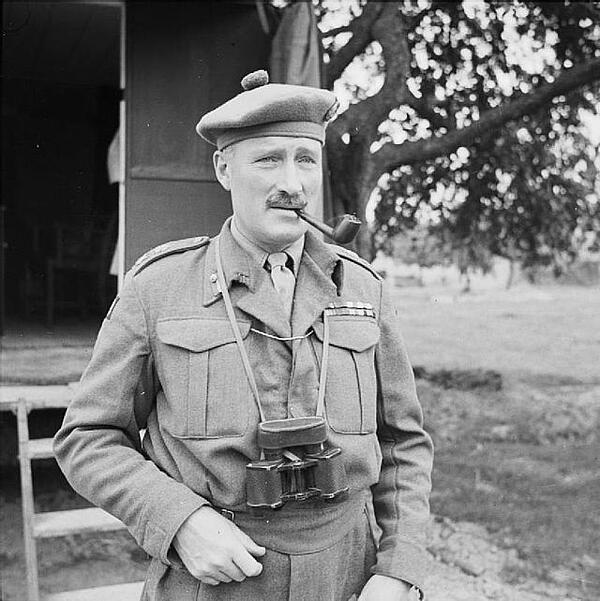Neil Ritchie
Lieutenant-General Neil Ritchie was commander of the Eighth Army in North Africa for the Battle of Gazala. The battle ended in a crushing defeat and the Allies lost Torbuck. Winston Churchill was incandescent and Ritchie was sacked. He continued to serve in the army in other roles during World War Two.
Born in in 1897, Ritchie was schooled at Lancing College and Sandhurst. During World War One he saw action in France and Mesopotamia. He was awarded the Military Cross for distinguished service in 1918.
By 1939, Ritchie had been promoted to the rank of brigadier. At the outbreak of hostilities, Ritchie travelled to France with the BEF and served as chief-of-staff there under General Alan Brooke. After the Dunkirk withdrawal, Ritchie served under General Claude Auchinleck. Auchinleck gave Ritchie command of the 8th Army in North Africa in November 1941. This appointment provoked consternation in some circles because it was only during World War One that Ritchie had commanded a large field unit.

The British launched ‘Operation Crusader’ at the end of 1941 which prevented Erwin Rommel, ‘the desert fox’, from besieging Tobruk. The British were driving the Afrika Korps back west by the beginning of 1942.
During January and May 1942, the fighting suddenly quietened down in North Africa. This gave both sides a chance to re-group, but Winston Churchill was angered by Auchinleck’s timidity. Auchinleck promised to attack in June, but Rommel beat him off the mark and began an attack on 26 May. This offensive set off the Battle of Gazala.
Ritchie led the Eighth Army into this battle. He assumed that the Germans would attack along the Northern coastal road, and made his first line of defence the Gazala Line. Rommel cleverly ordered a diversionary attack down the Northern coastal road, and made his most significant attack along the Gazala Line’s southern sector.
Ritchie’s men outnumbered Rommel's by around 10,000 (100,000 troops versus 90,000) and he had more tanks at his disposal. But Rommel’s tactics secured a German victory. He attacked a weaker point of the Gazala line and used concentrated tank units. On 12 June, two British armoured brigades were captured in a pincer movement and beaten up. Ritchie now had only one surviving armoured brigade. On 14 June, Ritchie decided to abandon Gazala. By 21 June, Rommel’s forces had taken Tobruk. The Afrika Korps managed to capture 35,000 prisoners.
Churchill was infuriated by this decisive defeat and labelled the fall of Tobruk a “disgrace”. Ritchie’s replacement as commander of the 8th Army was Bernard Montgomery.
Ritchie became commander of 12th Corps for the D-Day landings in June 1944.
In 1947, Ritchie was made commander-in-chief of British land forces in the Far East. He stayed in this role until retiring.
Neil Ritchie died on 11 December 1983 at the age of 86.
See also: D-Day landings
MLA Citation/Reference
"Neil Ritchie". HistoryLearning.com. 2026. Web.
